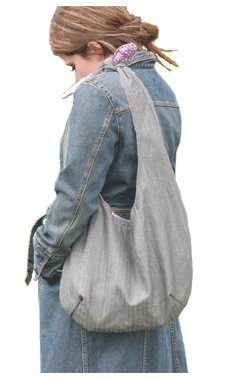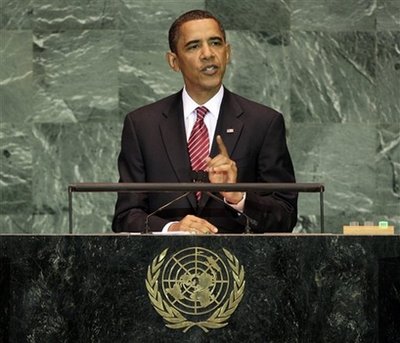|
Global Projects Know Human Trafficking is Real!
|
Global Projects is Detroit's connection to the reality of human trafficking which is not
just an international problem but has now come home to the metro area. We have been advocates against this crime for some
years.
|
PRLog (Press Release) – Nov 09, 2010 – Detroit, MI - Global Projects for Hope, Help and Healing who has been involved with
combatting human trafficking for some years, located in Detroit we know first- hand the devastation of this bondage. The organization
has been on the international front working and educating the public of this modern day slavery of children and women.
The plight of women and children caught in this sting has expanded its reach into the metro Detroit area and Global Projects
is ready to be a voice for those without a voice and advocates for change at all levels of government local and federal. Dr.
Sabrina Black, founder and president has taken teams on the mission field to help build bridges with NGO, churches, private
sector to get involved in helping the plight of girls caught in this horrific crime against humanity. From London, Spain,
Italy and Nigeria. Global Projects offer expertise and experiencewhether by way of a webinar, beginnings of a documentary,
mission teams on multiple trips, or writing and speaking, they are ready and wanting to make a difference. Global
Projects is the foot soldiers in this battle for the lives of women and girls and they have stories to share as well beginning
with a former trafficker and young girls who have left the streets andare trying to rebuild their lives. They are
a resource in Detroit that offers hope, help and emotional, mental, spiritual and psychological healing to victims. To
get involved or volunteer go to website www.globalprojects.org or call 313-205-7300. Come make a difference.
# # #
Global Projects is a nonprofit community based service organization located
in city of Detroit.
Services are local, national and global. We offer crisis counseling, crisis intervention training,
leadership training for men and women. We have done mission on 5 of the 7 continents.
Ontario to Traffickers: We're Open for Business
The Coalition Against Trafficking in Women
NEW YORK, Oct. 4 -- /PRNewswire/ -- In commemoration of October 5: International Day of No Prostitution,
the Coalition Against Trafficking in Women (CATW) stands in opposition to the Ontario Supreme Court's recent decision which
voided Canada's anti-prostitution laws. The Court asserts that their ruling will lead to greater safety for women in prostitution.
This decision, to the contrary, is certain to put even more women and girls at risk. It is premised on false notions and is
seriously at odds with Canada's respected human rights record.
First, decriminalizing prostitution sends an unmistakable signal to pimps and human traffickers that they are welcome to
conduct "business" in Canada. This is an especially dangerous message to send at a time when human trafficking is now tied
with illegal arms sales as the leading source of criminal earnings in the world. Countries that have legalized prostitution
have witnessed a dramatic increase in both the demand for prostitution and the incidence of sex trafficking it fuels.
Second, prostitution is a practice of sex discrimination that targets girls and women for abuse. It is a social injustice
stemming from and perpetuating the world's oldest inequality, that of women. It is also inextricably linked to sex trafficking.
Decriminalization of prostitution ignores the underlying social inequalities that give rise to sexual exploitation and is
fundamentally at odds with the goal of human equality. The most effective way to address this injustice is to create the legal,
political and social conditions that give women alternatives to prostitution rather than working to keep them in the sex industry.
Canada should decriminalize the women in prostitution and address the demand for prostitution by penalizing the buyers
instead of paving the way for men to purchase women and children. A good place to start would be to adopt the Nordic Model,
originated in Sweden, and passed in other countries such as Norway, Iceland, the Philippines and South Korea.
The Nordic Model is premised on the recognition that prostitution is violence against women. It also recognizes
that women and girls are human beings and therefore cannot be bought or sold for commercial sexual exploitation. It criminalizes
the sex industry and their customers while decriminalizing those exploited in the sex trade. By criminalizing the purchase
of a sexual act, the law identifies and penalizes the agents of the harm inherent in prostitution. It is the only approach
that has led to a decline in sex trafficking.
The Coalition Against Trafficking in Women, the world's first organization to fight human trafficking internationally,
adds our voice to those of the Canadian women's groups and human rights advocates who are calling upon their high court to
reverse this decision and to legislate against the demand for commercial sexual exploitation.
SOURCE The Coalition Against Trafficking in Women Read more: http://www.sunherald.com/2010/10/04/2528687_ontario-to-traffickers-were-open.html#ixzz11cFWXPeZ

Trafficking in Persons Report
The Secretary of State submits the annual "Victims of Trafficking and Violence Protection Act of 2000: Trafficking in Persons
Report" to Congress. This report covers "severe forms of trafficking in persons" defined as:
"(a) sex trafficking in which a commercial sex act is induced by force, fraud, or coercion, or in which the person induced
to perform such act has not attained 18 years of age; or (b) the recruitment, harboring, transportation, provision, or obtaining
of a person for labor or services, through the use of force, fraud or coercion for the purpose of subjection to involuntary
servitude, peonage, debt bondage, or slavery."
Source U.S. Department of State.

Presidential Proclamation -
National Slavery and Human Trafficking Prevention Month (1/04/10)
The United States was founded on the principle that all people are born with an unalienable right to freedom -- an ideal
that has driven the engine of American progress throughout our history. As a Nation, we have known moments of great darkness
and greater light; and dim years of chattel slavery illuminated and brought to an end by President Lincoln's actions and a
painful Civil War. Yet even today, the darkness and inhumanity of enslavement exists. Millions of people worldwide are held
in compelled service, as well as thousands within the United States. During National Slavery and Human Trafficking Prevention
Month, we acknowledge that forms of slavery still exist in the modern era, and we recommit ourselves to stopping the human
traffickers who ply this horrific trade.
As we continue our fight to deliver on the promise of freedom, we commemorate the Emancipation Proclamation, which became
effective on January 1, 1863, and the 13th Amendment, which was sent to the States for ratification on February 1, 1865. Throughout
the month of January, we highlight the many fronts in the ongoing battle for civil rights -- including the efforts of our
Federal agencies; State, local, and tribal law enforcement partners; international partners; nonprofit social service providers;
private industry and nongovernmental organizations around the world who are working to end human trafficking.
The victims of modern slavery have many faces. They are men and women, adults and children. Yet, all are denied basic human
dignity and freedom. Victims can be abused in their own countries, or find themselves far from home and vulnerable. Whether
they are trapped in forced sexual or labor exploitation, human trafficking victims cannot walk away, but are held in service
through force, threats, and fear. All too often suffering from horrible physical and sexual abuse, it is hard for them to
imagine that there might be a place of refuge.
We must join together as a Nation and global community to provide that safe haven by protecting victims and prosecuting
traffickers. With improved victim identification, medical and social services, training for first responders, and increased
public awareness, the men, women, and children who have suffered this scourge can overcome the bonds of modern slavery, receive
protection and justice, and successfully reclaim their rightful independence.
Fighting modern slavery and human trafficking is a shared responsibility. This month, I urge all Americans to educate themselves
about all forms of modern slavery and the signs and consequences of human trafficking. Together, we can and must end this
most serious, ongoing criminal civil rights violation.
NOW, THEREFORE, I, BARACK OBAMA, President of the United States of America, by virtue of the authority vested in me by
the Constitution and the laws of the United States, do hereby proclaim January 2010 as National Slavery and Human Trafficking
Prevention Month, culminating in the annual celebration of National Freedom Day on February 1. I call upon the people of the
United States to recognize the vital role we can play in ending modern slavery, and to observe this month with appropriate
programs and activities.
IN WITNESS WHEREOF, I have hereunto set my hand this fourth day of January, in the year of our Lord two thousand ten, and
of the Independence of the United States of America the two hundred and thirty-fourth.
BARACK OBAMA
|
|
